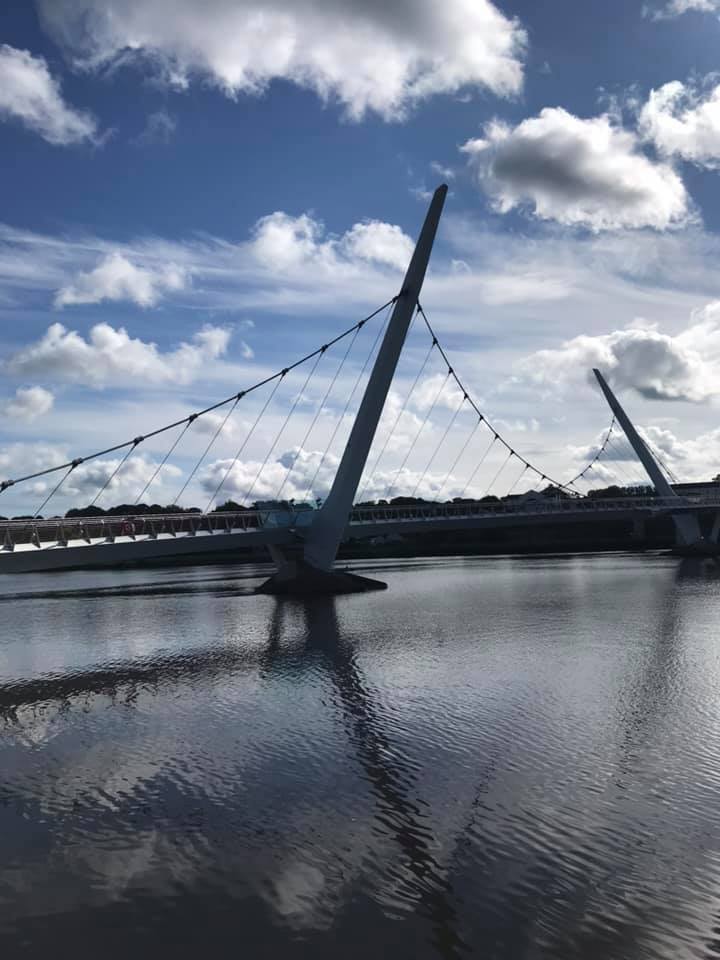I thought study abroad to the UK would help my career...it was so much more!
Posted on June 12, 2020 by Meaghann Baylor
When I decided to study abroad, I initially did it for the opportunity to earn credits for my minor while experiencing a trip to a different country. I thought of all the ways it could help me in my career in the future and decided to do it for that sole purpose, but I didn’t think of the little things that would have such an impact on me, as well. Throughout my experience abroad, I saw some of the most impactful pieces of art I’ve ever seen. I enjoyed music I would’ve never listened to in my spare time. I truly believe my time abroad, though short, took me on a journey that was a once-in-a-lifetime experience.
I decided on my program about 7 months before the program would start, this was a good thing, because it gave me time to go through the steps to prepare (getting a passport, speaking with my professor leading the trip, talking with the Study Abroad Office to make sure I was on track, etc.) and get to know more about my program. I chose a program for my minor, Political Science. I was excited because the program was in Scotland and Northern Ireland, and I’ve always wanted to visit Scotland because my mother lived there for 3 years when she was a teenager. I decided around 5 months before my trip that I would extend my trip, which meant I would stay after other students left. I chose to extend my stay by 11 days because the program was also 11 days and I wanted more time to see as much of the U.K. as possible. This intimidated me a little, because I would have the responsibility of taking care of myself and any hiccups along the way, but I was excited to challenge myself to be more independent. Before I knew it, I was a few days away from my trip, I was finishing packing and going over the itinerary for the trip. The course was focused on Brexit and what leaving the E.U. would mean for Scotland and Northern Ireland. I was so excited to talk about world politics and see different castles and Loch Ness.
My first day of travelling was mostly consumed with airports, layovers, and lots of
jetlag. I met with everyone from my program and was so excited to see what was in
store. While we walked to our lecture on my first day we saw several murals, street
art, and street performances. There were a lot of political and religious pieces.
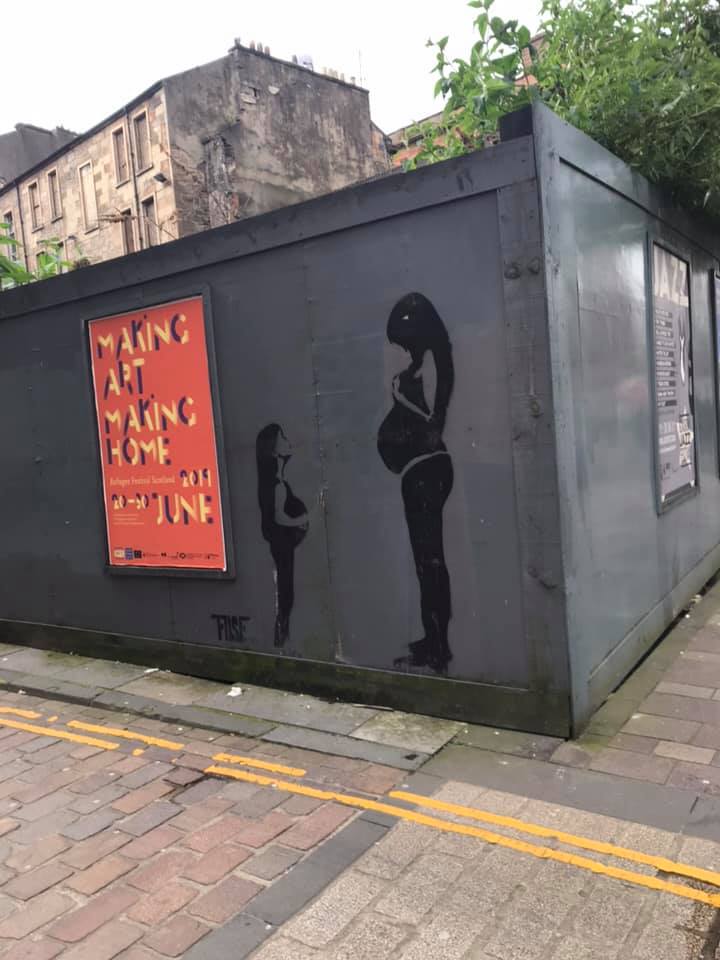
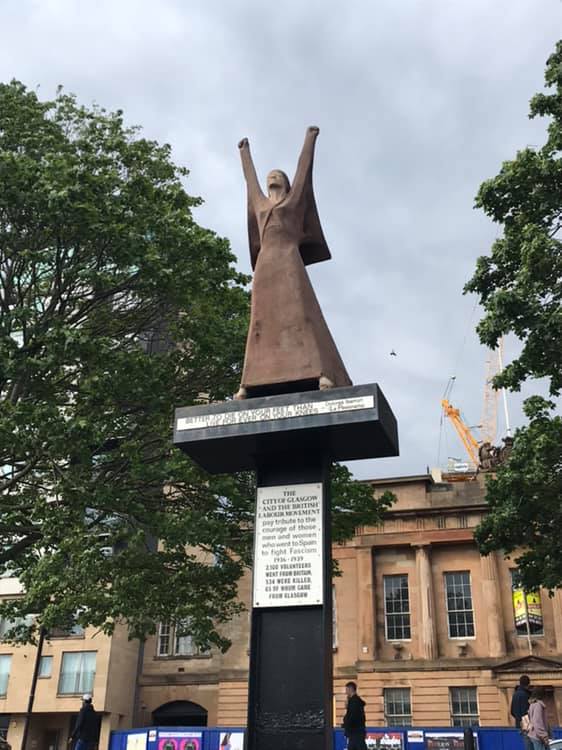


Later that day we went to an art exhibit in a museum. Most museums are free in the
U.K. There were a lot of abstract pieces. Heads floating in the entrance, a huge piece
that someone made with the museum in mind. They used the huge archways and the large
ceiling to their advantage. There were also taxidermied animals, peacocks and even
a huge bear. I really enjoyed as well.

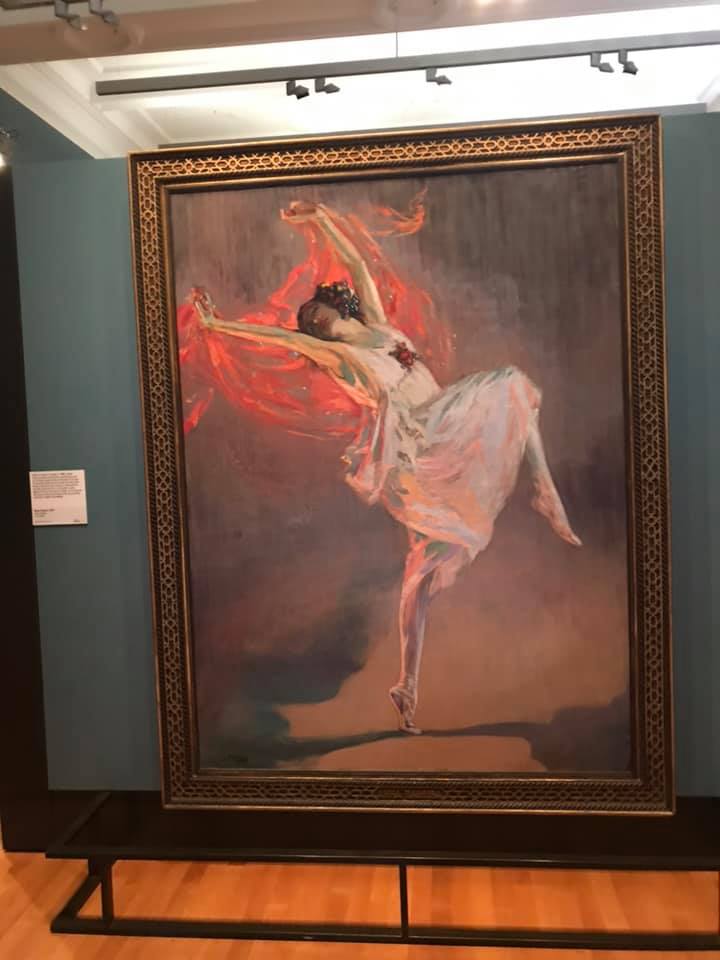
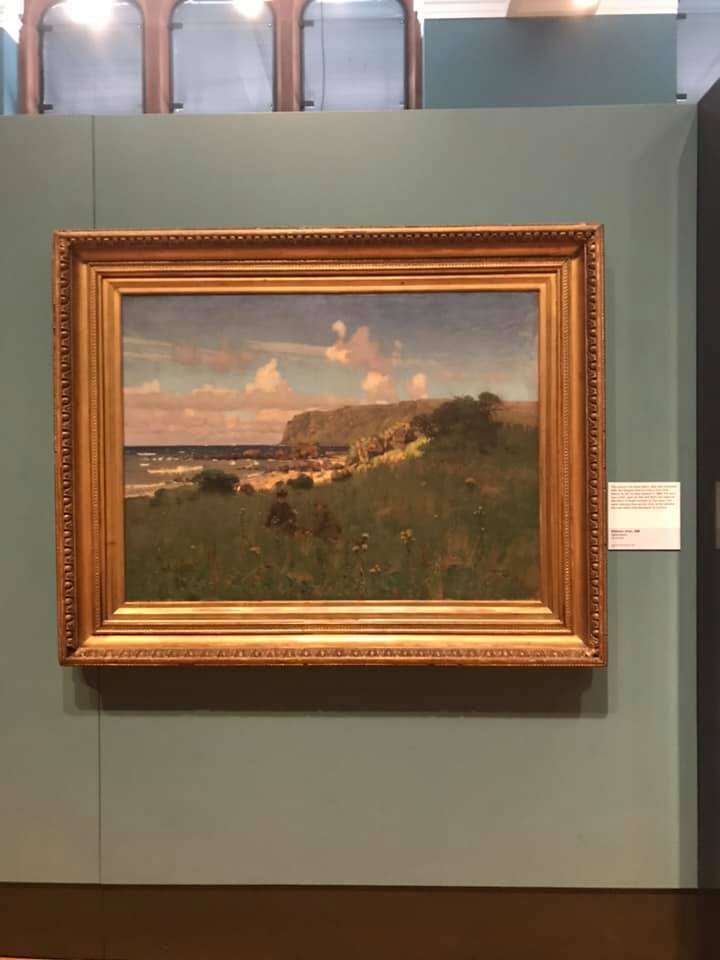

The next day we saw the West End of Glasgow, which had a lot of interesting art and murals, as well. One that particularly caught my eye was near a chain of bohemian cafés and shops. It was overtaking an entire building and depicted a man from Asia wearing traditional celebration clothing. It was nice to see that Scotland celebrated other people’s traditions and appreciated other cultures.
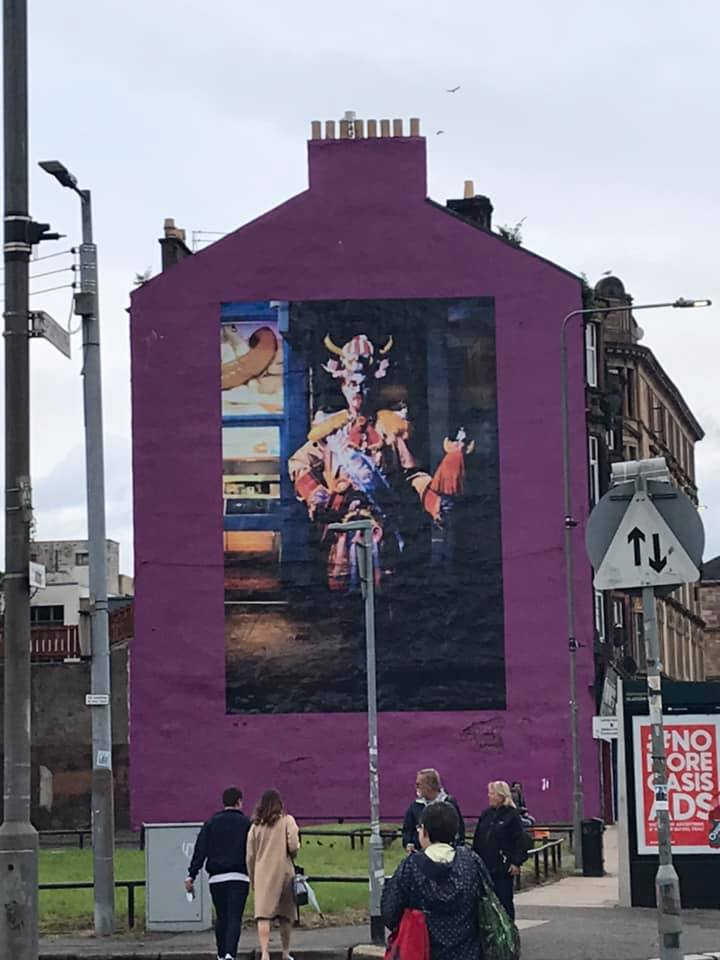
We also saw a lot of political art in the way of changing art in a form of protest.
For example, there were several statues dedicated to different political figures across
the U.K. Some people would dress them up in wigs or funny clothes in order to show
resistance. Someone even put a traffic cone on a statues head as a “Dunce Cap”.


A few other highlights of art and poetry in my trip was when we went to Edinburgh
and saw Scottish Parliament. At the beginning of the tour of Scottish Parliament,
we saw 3 large stones inscribed with poetry, article excerpts, and different quotes
from Scottish women. Some inscriptions were even in their own handwriting and the
Gaelic language. A few of my favorites were as follows: “My mother smothers her pain
and discomfort with her concern for everyone but herself.”, “Femininity is the pulse
of the Earth, when it is cherished humanity thrives.”, “She tried to warm her hands
on the fire that was to burn her.” (About a woman executed in Scotland for suspicion
of being a witch.), “Island women: A strong vision and a sense of purpose. They make
things happen.”, “She lost her country and her head for her beliefs, her love, and
politics.” (About Mary Queen of Scots.), “She cracked a glass ceiling in the Scottish
legal system.” (About Eilish Angiolini, She was the Lord Advocate of Scotland until
2011, having previously been Solicitor General since 2001. She was the first woman,
the first Procurator Fiscal, and the first solicitor to hold either post.)
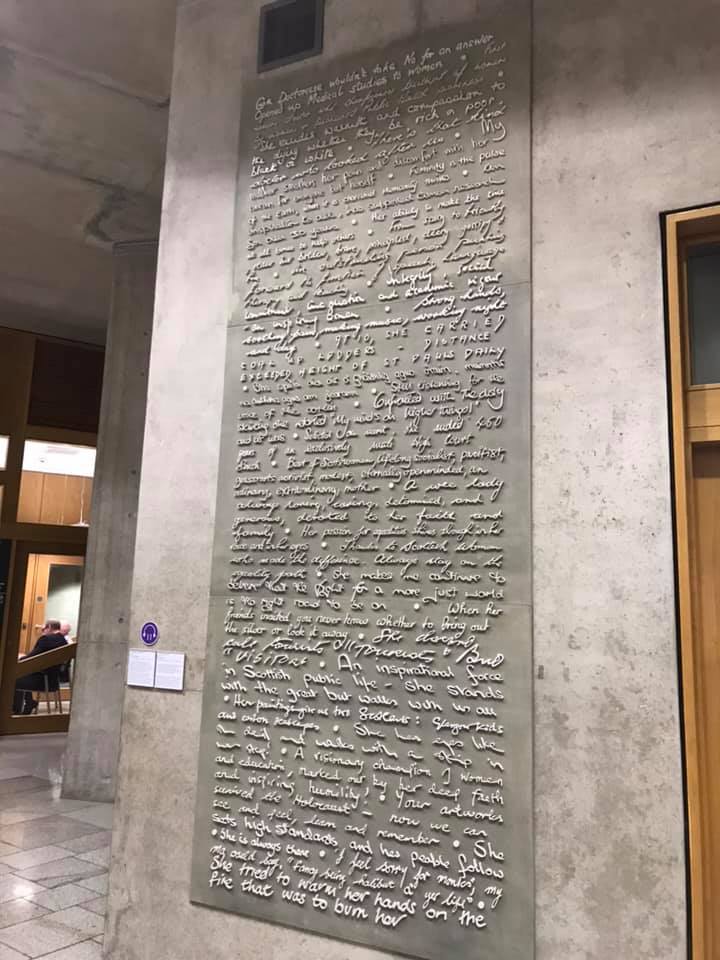
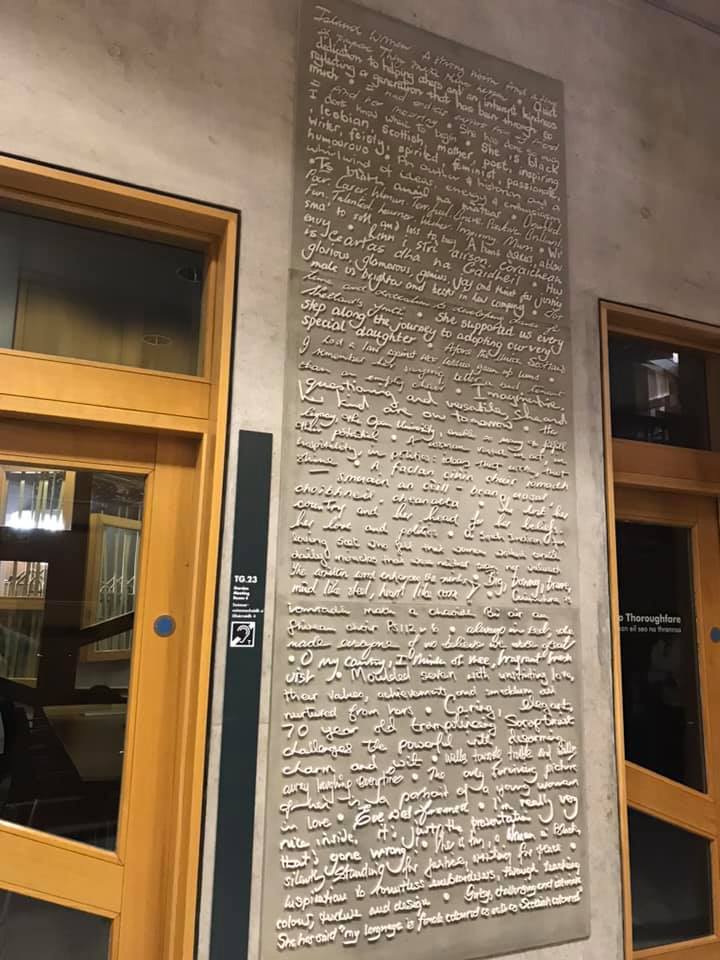

We also read a gorgeous poem, “Open The Doors”, by Edwin Morgan about Parliament (the system), the building itself (it was built with great intention, little details that the architect considered his own piece of art), and the duty MP’s should feel for their people.
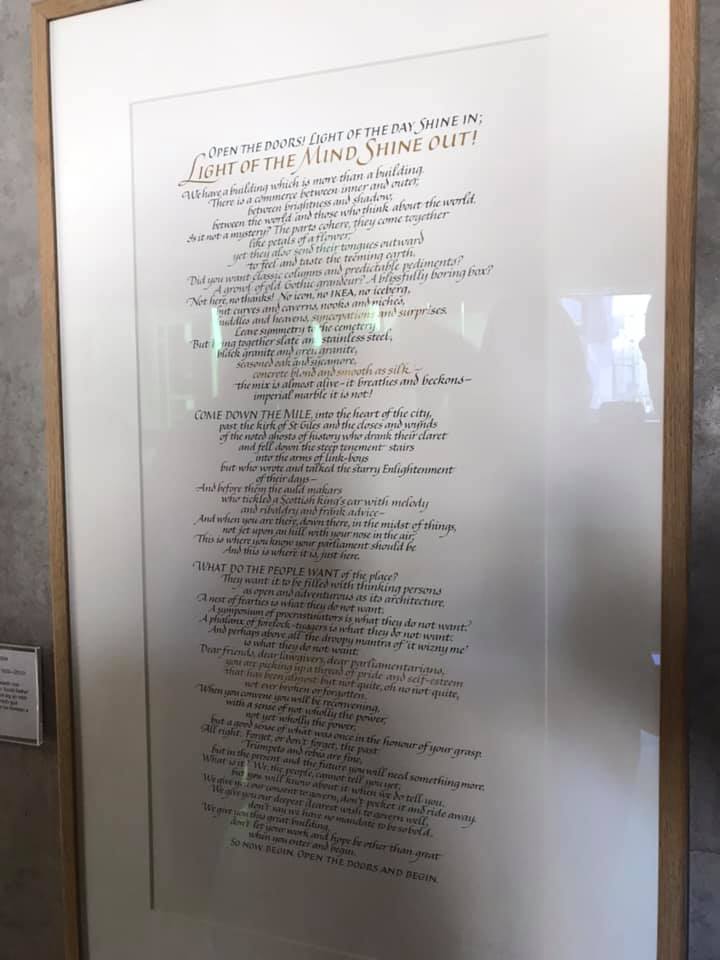
Belfast had, by far, the most art of them all. From our Black Taxi tour of murals,
to seeing murals randomly, to seeing a fascinating play on the unique strife Northern
Ireland has faced in relation to a period in history known as “The Troubles”, we became
more knowledgeable and empathetic towards the people of Northern Ireland. Firstly,
our Black Taxi Tour was eye-opening because of the history involved with these murals.
Some being up for decades, and some being up for only months, they told stories of
politics, humanity, and poverty.

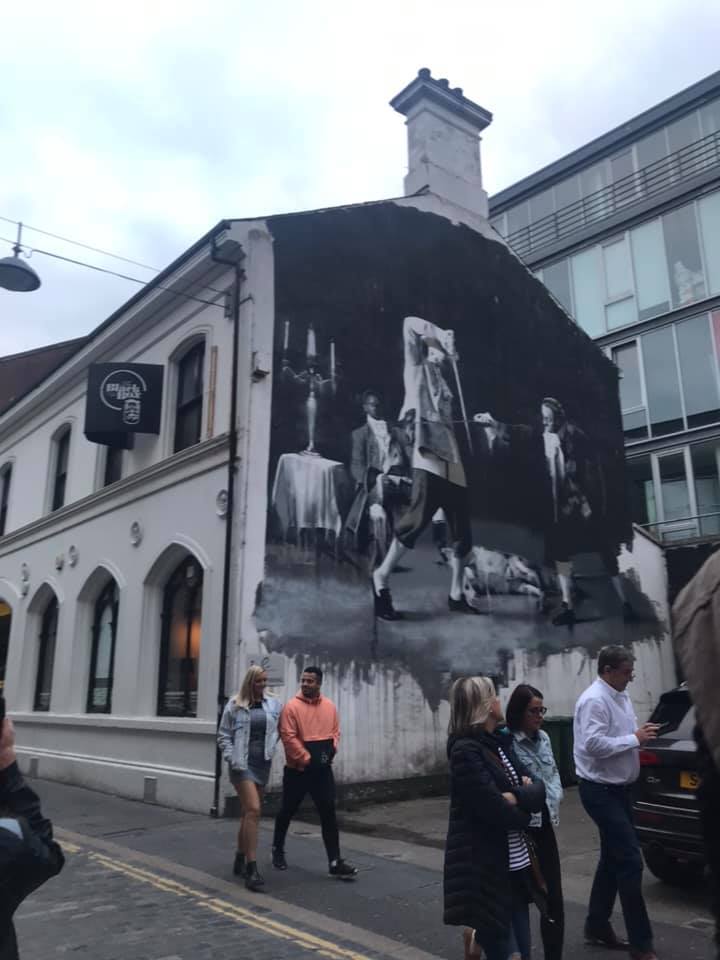
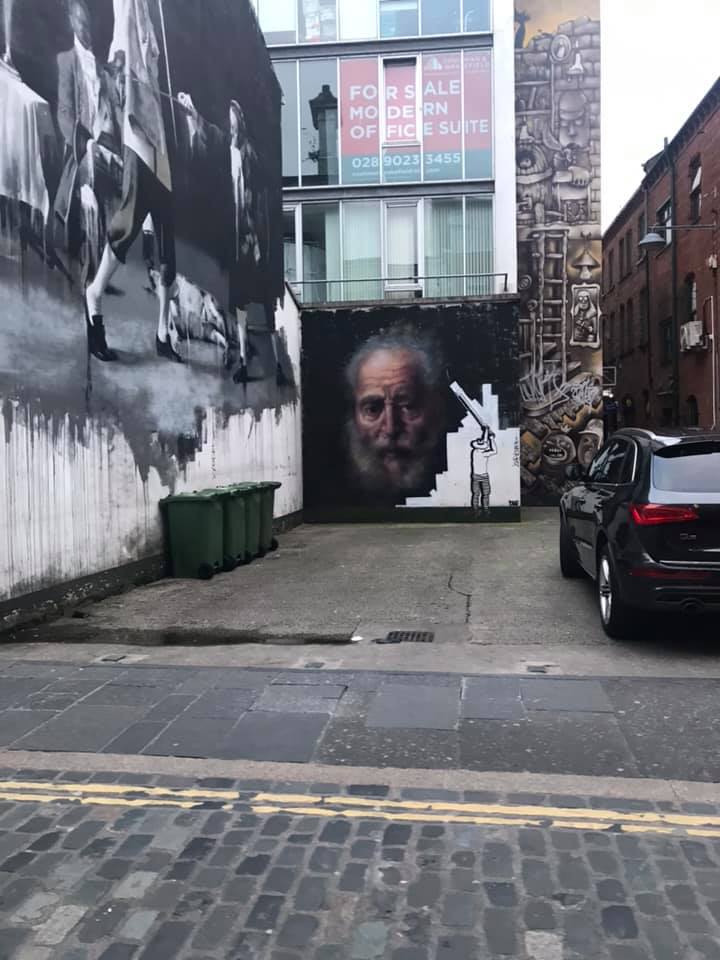

A few of my favorites, I would especially like to highlight would be The Women’s Quilt piece. The Lower Shankill Women’s Group (Shankill was a Protestant neighborhood in Belfast) created the artwork using the theme of a traditional family quilt. It was a beautiful reminder of the struggle of women in Northern Ireland, for mothers to keep their boys from becoming a part of the violence, to keep their families safe during such a dangerous period, and to keep their sanity in the process. It replaced two other grim images before it, representing peace and effort to unify.
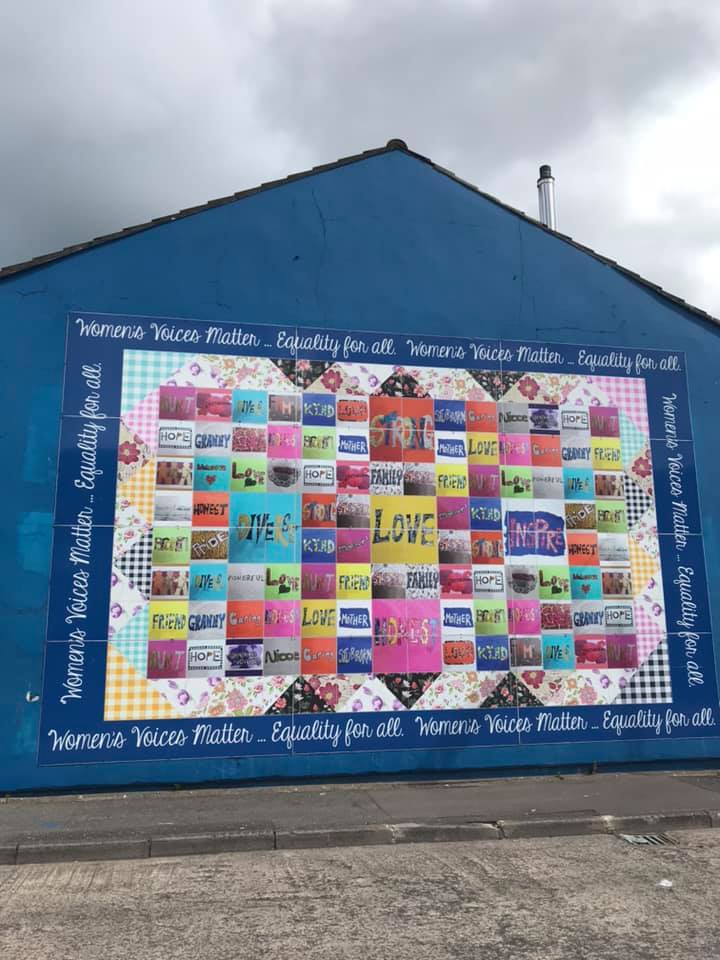

Another one of my favorites was a mural dedicated to Bobby Sands, an activist that ultimately died in a hunger strike against British occupation of Northern Ireland. A quote on it reads, “Everyone, Republican or otherwise has their own particular role to play… Our revenge will be the laughter of our children.”
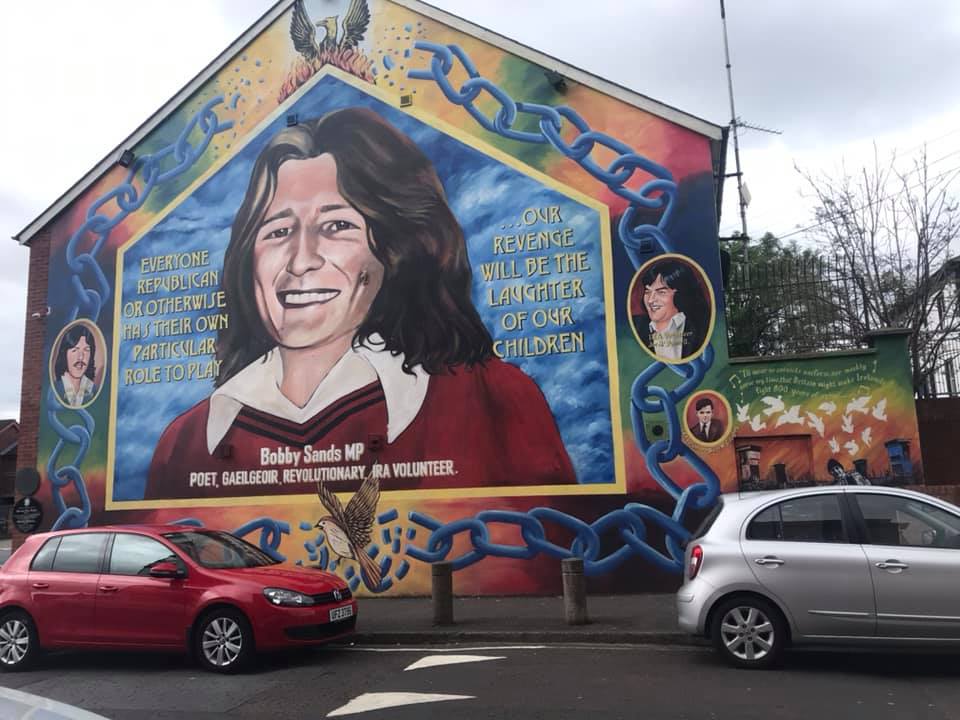
Another mural I thought was just neat was one of the final murals we saw, basically representing all of the difficulties Northern Ireland experienced during the Troubles.

We also saw an incredible play called Killymuck by Kat Woods, that highlighted a young girl and her life during the Troubles. It talks about growing up Catholic and in poverty, her father was an alcoholic who became violent with her, her mother, and her sister. She also talks about politics of the 1970’s, Margaret Thatcher, relentless bullying, substance abuse, abortion, growing up religious, and partisan terrorism in Belfast. I cried at the end because of such moving scenes. I was forced to think about humanity, violence, and what it means to forgive. It was such a fantastic one-woman-show. I also included a picture of an art piece made of thousands of colored string that was in the lobby of the venue where Killymuck was performed.


We also went to Belfast City Hall where I got to wear a piece of art: a cloak meant to be worn by representatives that meet in City Hall. There were also accessories to be worn with it, expensive chains, a staff, a crest, etc.
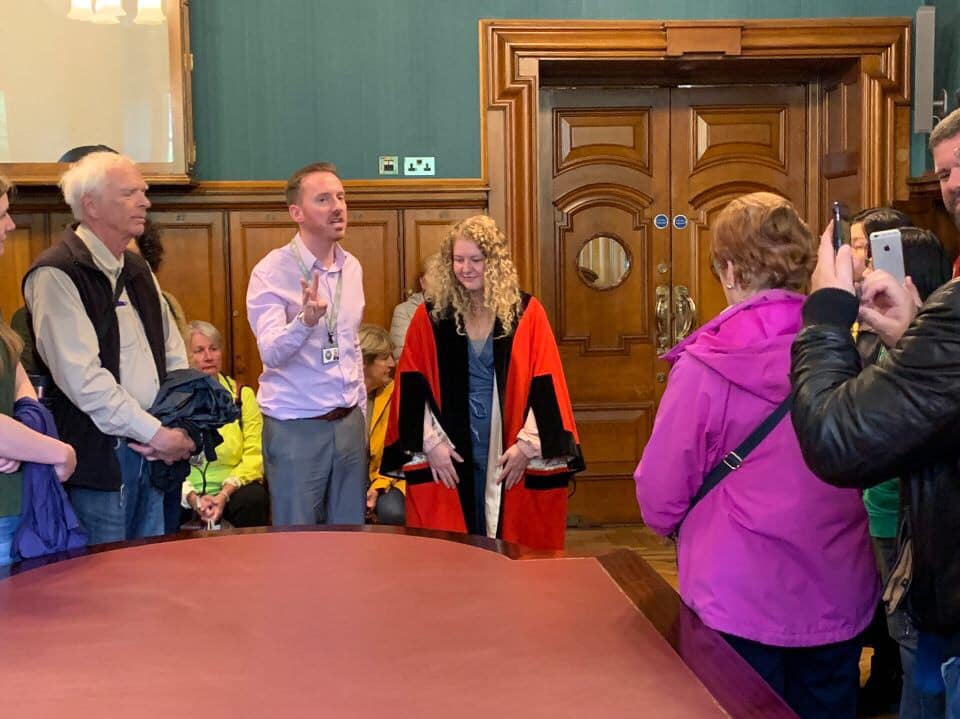
When we went downstairs in City Hall, there was a beautiful art exhibition about family members who lost loved ones in sectarian violence during the Troubles, called the Reflection room. A somber tone, the entire room is reflective, lit up white walls.
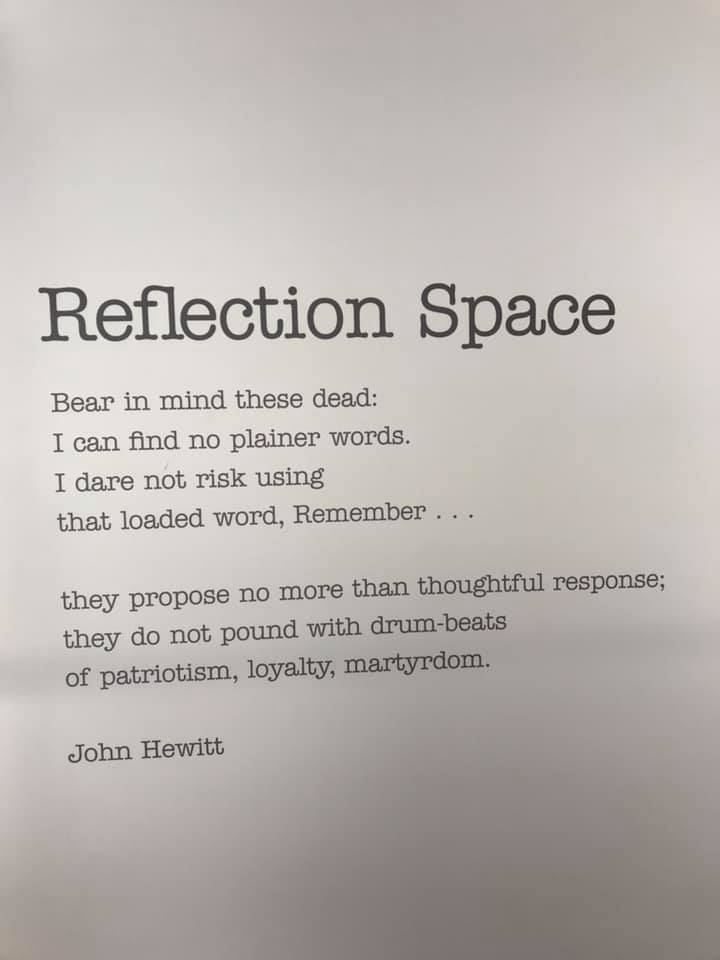


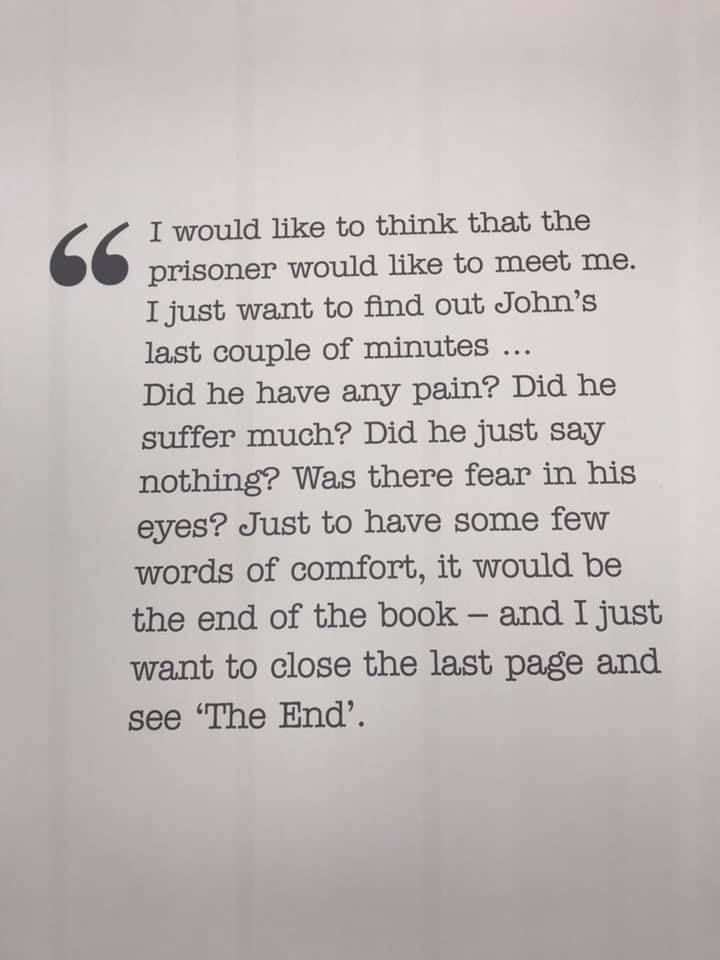
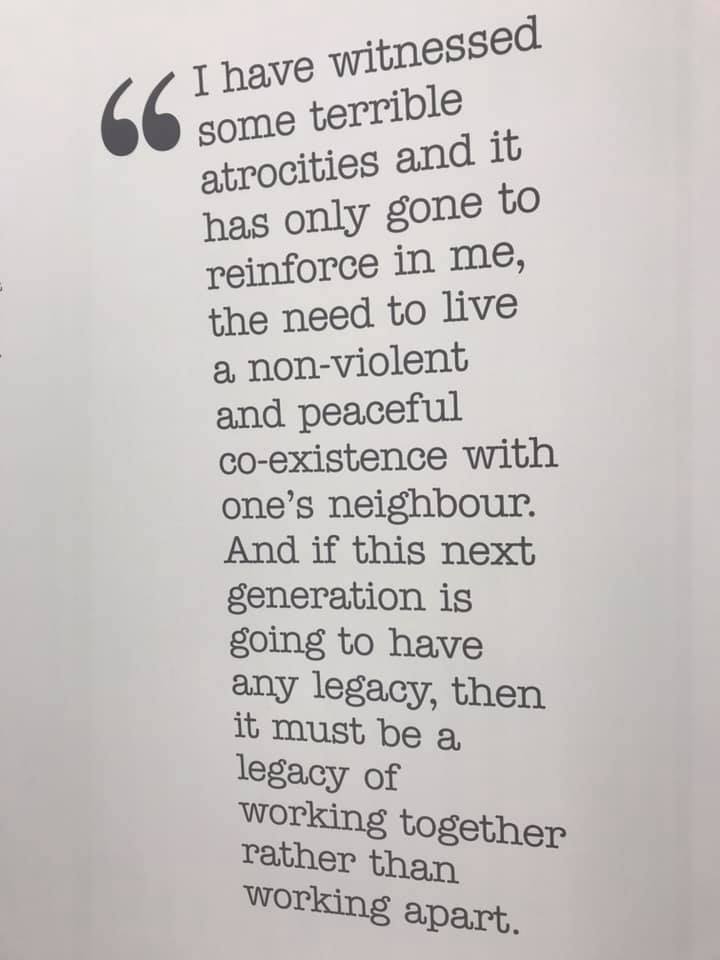
Finally, our last stop was the town of Derry. There is much debate on calling it
Free Derry or Londonderry, however the locals fought hard for their independence to
call it Free Derry, especially against the occupation of the British. The first thing
I saw as we walked into town was graffiti-type sticker, protesting Brexit because
of opposing a border wall. The history of checkpoints along Northern Irelands border
is long and painful, and something the people of Derry opposed strongly.
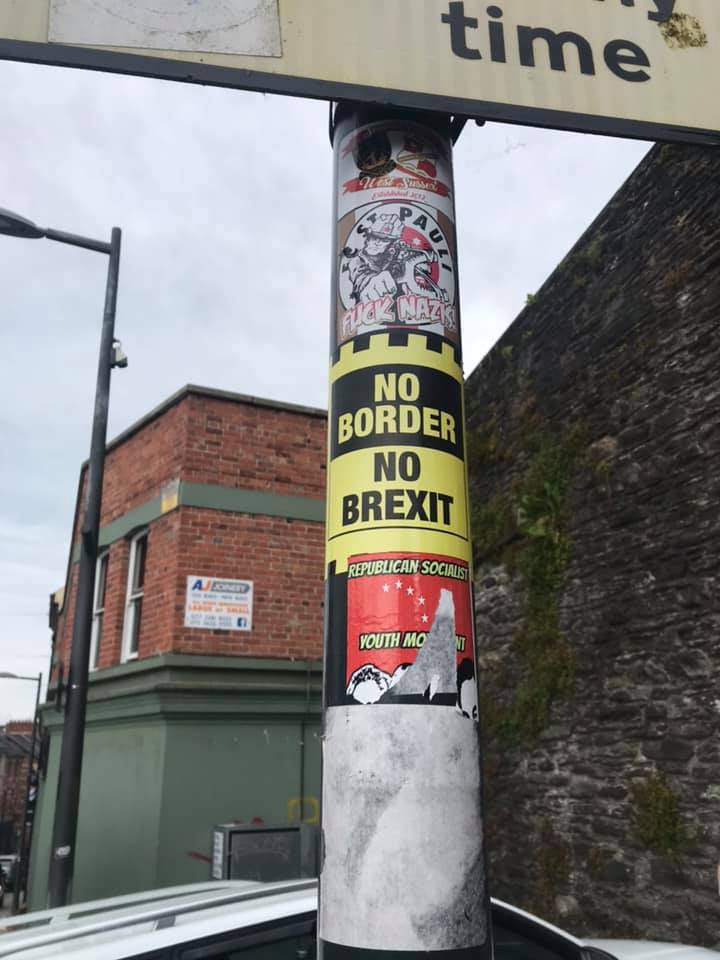
On our last day, we walked around to see the murals in Derry. Much like the murals
in Belfast, the murals in Derry allude to political turmoil and sectarian violence.
In Derry, an event known as Bloody Sunday took place in 1972. It is also known as
the Bogside Massacre because 28 unarmed civilians were shot by British soldiers during
a protest against internment. 14 people died as a result of their injuries. We saw
many unionist murals, however, we were surprised to see a loyalist mural in the heart
of the city, which read “Londonderry Westbank still under siege, no surrender.”
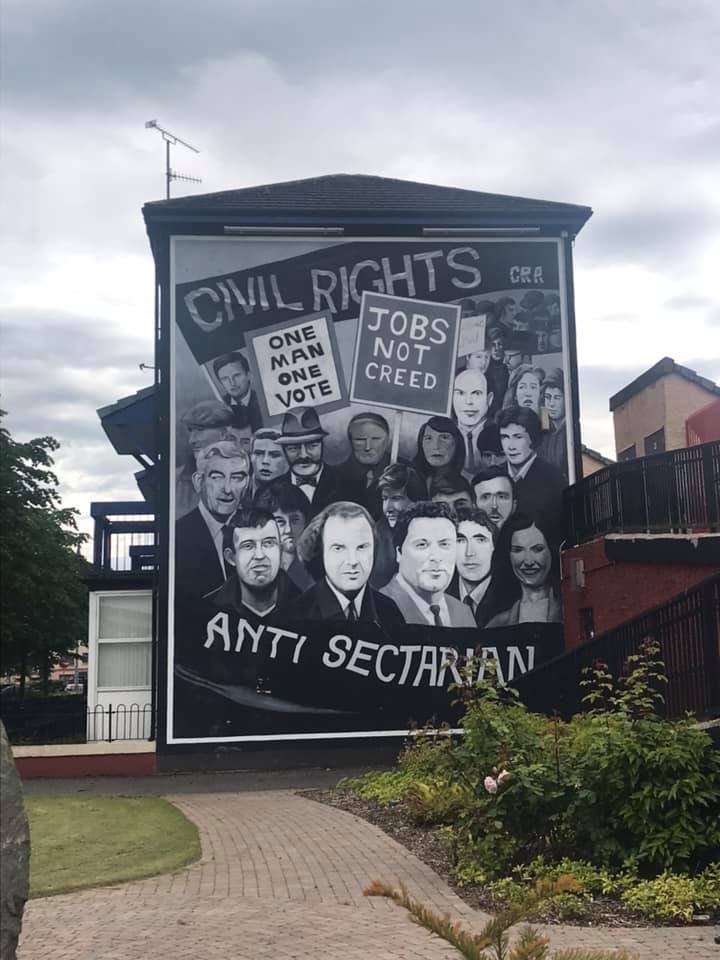

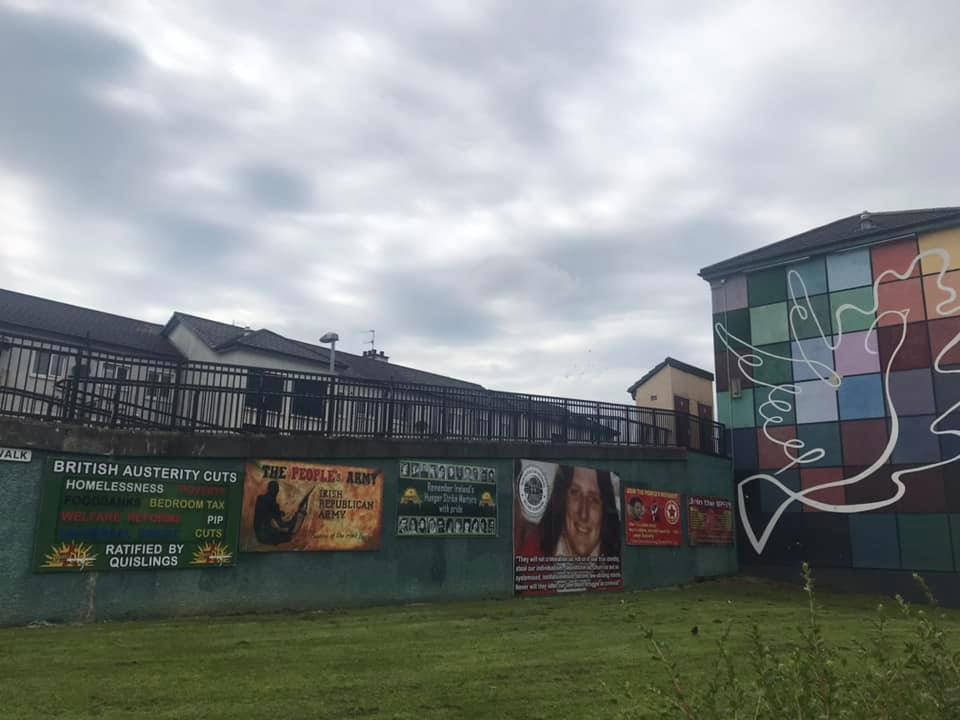
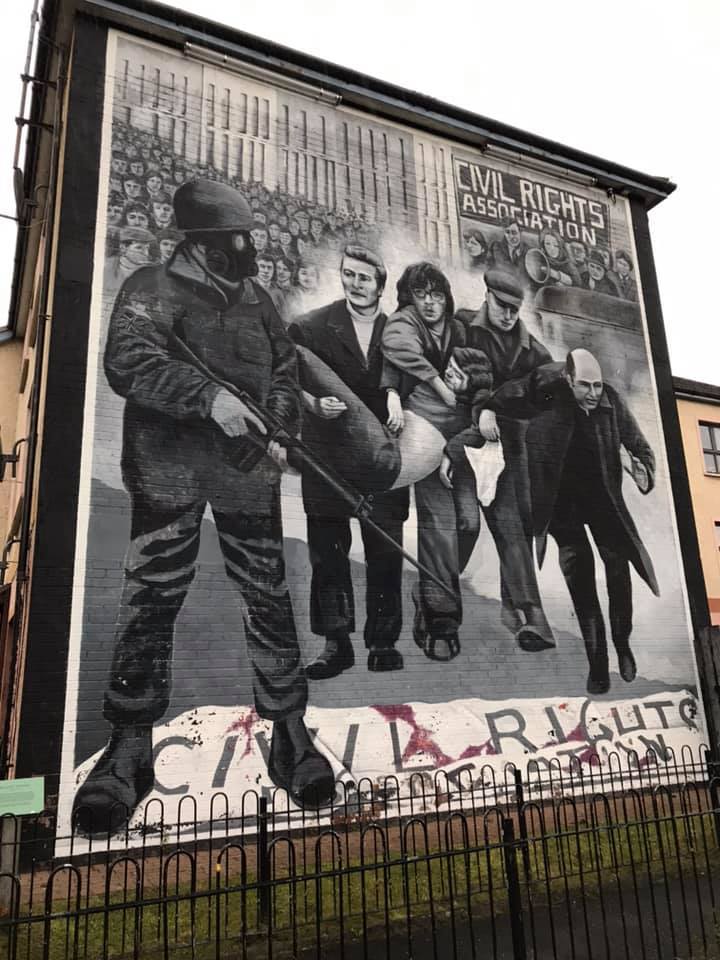

Finally, we walked across the Peace Bridge in Derry. A symbol of connecting two parts
of a city and unifying them as one community. It may not be considered “art”, but
the architecture and the message the bridge sends is an art piece in itself.
